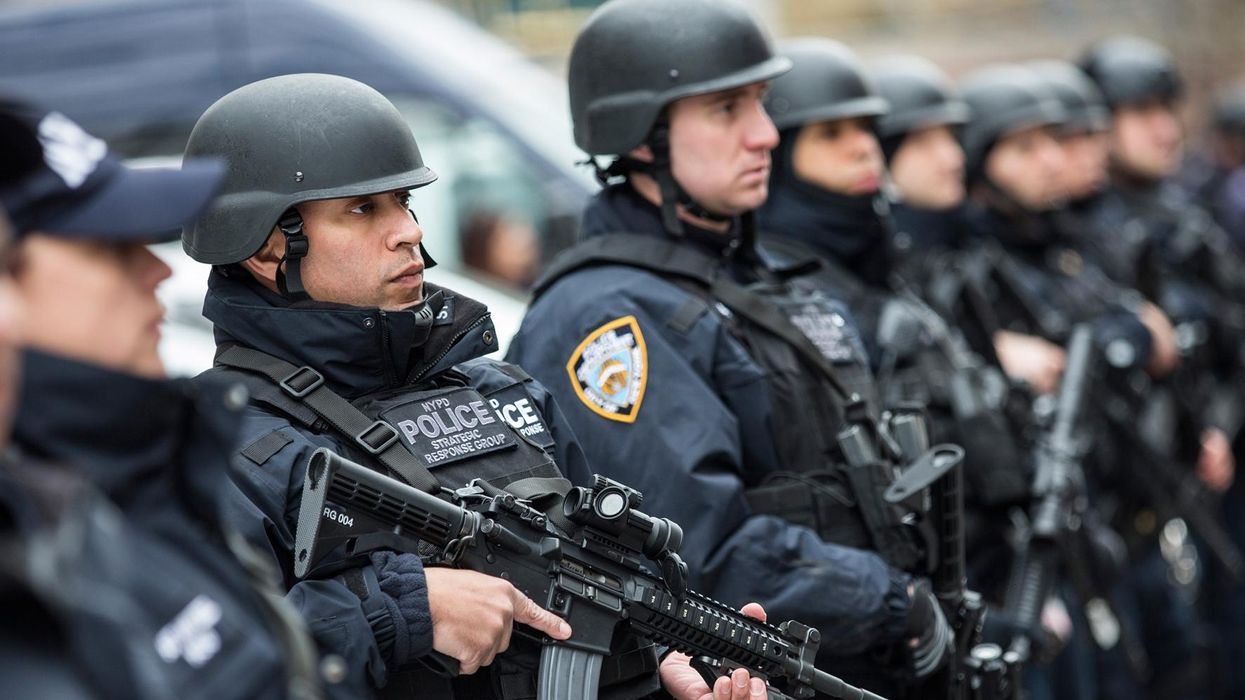News
Narjas Zatat
Mar 13, 2017

Picture:
Andrew Burton/Getty Images
Donald Trump’s presidency has ushered in a new era of politics, evidenced by the rise of right wing populism in the US and beyond.
The President’s newest manifestation of anti-immigrant rhetoric is the introduction of an amended executive ban on immigrants: The new ban does not apply to green card holders and those who already have visas.
It reads:
I am imposing a temporary pause on the entry of nationals from Iran, Libya, Somalia, Sudan, Syria, and Yemen, subject to categorical exceptions and case-by-case waivers.
The order is set to take effect on March 16.
From the many speeches and campaign promises Mr Trump has made in the past, it would appear that his decision to exclude migrants from these countries is fuelled by fears of terrorism committed by foreign nationals.
On Monday, Donald Trump said Attorney General Jeff Sessions had reported to him that more than 300 refugees are being investigated for terrorism offences.
Sessions reiterated that figure, saying:
More than 300 people, according to the FBI, who came here as refugees, are under an FBI investigation today for potential terrorism-related activities.
However, bothThe New York Times and The Washington Post reported that Homeland Security and Justice Department officials declined giving further details, including how many of those come from one of the six banned countries.
On 28 February, during his first speech to Congress, Trump went on to say:
The vast majority of individuals convicted for terrorism-related offences since 9/11 came here from outside our country.
It is in fact unclear what Justice Department data he cited, but according to recently released research by Homeland Security, of the 82 people the government concluded were either inspired by a foreign terrorist group or attempted to carry out an attack on the US, over half were native-born.
Trump’s statement appears to have been based on a list of 580 international terrorism-related investigations through 31 December 2014.
There are a few problems with this list.
An analysis by a Senate subcommittee staff found that:
… At least 62 were from Pakistan, 28 were from Lebanon, 22 were Palestinian, 21 were from Somalia, 20 were from Yemen, 19 were from Iraq, 16 were from Jordan, 17 were from Egypt, and 10 were from Afghanistan.
This means seven of the top nine places of origin for terrorist cases were not from the prescribed banned list of countries.
A further analysis by the CATO Institute found that “at most, only 58 per cent of the ‘terrorism-related’ convictions given as the likely justification for this executive order can be classified as actual terrorism. The other 42 per cent were not convicted of a terrorism offence".
The list of 580 is also missing something key: terrorism committed by white supremacists.
Overwhelming evidence suggests that most of the people arrested in connection with terrorist activities are born in the US.
The Department of Homeland Security recently found that 57 per cent of the 204 "jihadists" indicted or killed between March 2011 and December 2016 were American-born.
The Centre for National Security executive director Karen Greenberg told the NewsHour Weekend:
There is no predictive trend for any particular foreign nationality and terrorism in the United States.
HT PBS
More: Racist newspaper stories are permanently damaging your brain, study finds
More: Spreading hate: How white supremacists hijacked social media
Top 100
The Conversation (0)













